By Katie Eubanks Ginn
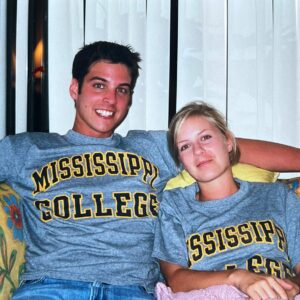
From pastoring to counseling — and protecting their marriage.
Thirteen years ago, metro Jackson native Ben Derrick had a calling to the ministry, a seminary degree, and years of useful experience — but he couldn’t get a church to hire him.
In fact, the only job Ben could get was at a telecommunications company, first in retail and later in a warehouse.
Because of that, “I was convinced (that I had) messed up being a man of God so horrifically that God had cast me aside,” Ben says.
Over a year later, thanks to a friend who took a chance on him, Ben finally started working at what is now Vertical Church in Gluckstadt. His family settled in at Vertical, and the community there helped him climb out of depression. Eventually he became lead pastor. Life was great.
Then in 2021, God called Ben to take his vocation outside the church building — the place where he’d desperately wanted to work a decade earlier — and enter the mental health field, to help men and marriages in crisis.
After a lot of prayer and conversation, Ben and Cammie decided to step into what Ben calls “the holy wild.” Their own marriage has been tested. Their own mental health has taken hits, as have their finances and friendships. But they believe obeying God is worth it.
‘I think you’re making a mistake’
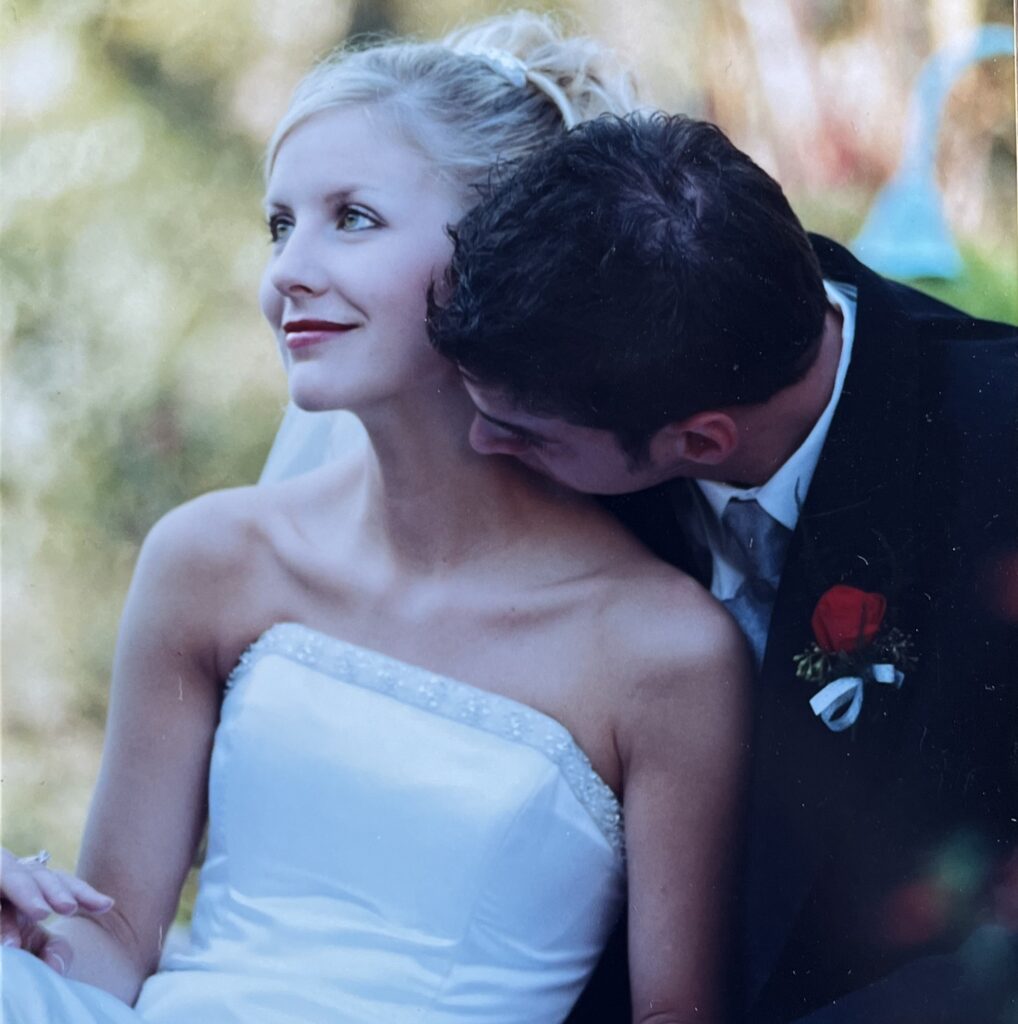
At 17, Ben was diagnosed with Hodgkin’s lymphoma, underwent 44 rounds of radiation (“Imagine being put in your own microwave 44 times,” he says), and lost nearly 50 pounds.
After that, “I had my parents in the palm of my hand,” Ben recalls. They even let him go on a cruise out of New Orleans with friends. That’s where he met Cammie.
“I was sitting at the entryway of the boat,” he says. “And Cammie and her crew (happened) to be on that same boat. And man, I knew. I can still see her in that sundress …. I was like, this is going to be a great week.”
Cammie remembers Ben as wordy, talkative, and intelligent.
“I went to high school with a lot of athletes – and he was an athlete too, but I was just very impressed by how smart he was,” she recalls.
Cammie, who’d attended a private Christian high school in Baton Rouge, was already planning to attend Mississippi College, located right in Ben’s backyard in Clinton. “I didn’t want to go to a big university,” she says.
Ben did want a big university. He intended to have a good time at Mississippi State, far from parental supervision. However, “I knew my life would be some version of vocational ministry.”
One Sunday at church, the service ended and “a man named Tom Prather came barreling out of the choir (loft) in his robe and told me very directly, ‘I think you’re making a mistake with where you’re going to college,’” Ben recalls. And he knew Mr. Prather might be right.
‘I think God’s done with me’
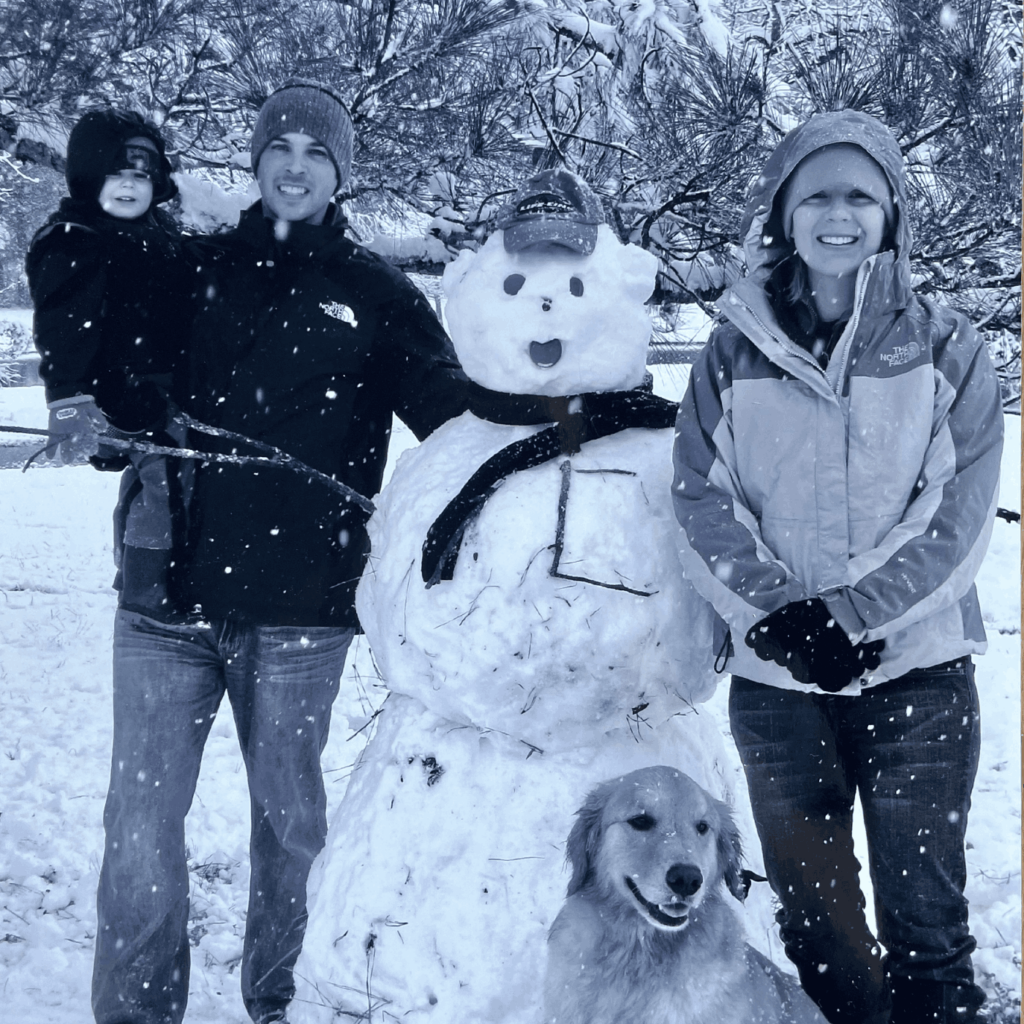
Ben and Cammie had kept in touch, but while he pondered where to get his degree, she cut off communication. “She (said), ‘I do not need to be the reason that you shift colleges.’ That showed a lot of strength,”
he says.
Ben eventually chose Mississippi College, where he majored in Christian studies and philosophy and Cammie majored in interior design. After marrying, graduating, and moving to Texas so Ben could attend seminary, the Derricks moved to rural Scott County, Mississippi. David Cooke, Ben’s former student pastor, had started a new Christian camp called Timber Creek and invited them to help get the camp up and running. They lived on site.
“(Our first son) was less than a year old, and we were living in a cabin while our house was being built, and I vividly remember giving Owen baths in an Igloo cooler, because there were only showers in the cabin,” Ben says. “It was just a really beautiful time.”
“Our second son (Shepard) was born while we were there,” Cammie says. “(He and Owen’s) very early years were at camp, which was just so much fun for little boys, and our good friends were there.”
Eventually, the pace of camp life — and the massive exposure to germs from campers — meant that Ben stayed sick a lot. “I had a couple of brushes with death that were actually more serious than the cancer,” he says. The Derricks left Timber Creek after nearly nine years.
Ben was ready to enter church work then, but “I just didn’t have the resume,” he says. “When people hear ‘Christian camp,’ they think you’re (just) a camp counselor.”
Thus began Ben’s 13 months of self-doubt and depression. But those months were also tough on Cammie. “We moved to Madison and started from scratch, and I didn’t know anybody,” she says.
Thankfully, “That’s when I got into the fitness scene. That has through the years became like my therapy,” she says. Cammie still teaches group exercise classes at the Madison Healthplex Performance Center and was group fitness director there for a time.
Also, while she adjusted to life in the metro, the boys were still little. “(I was) kind of distracted with them and couldn’t have a pity party.”
Finally, Ben called a man named Philip Thurman, whom Ben and Cammie had met when Philip worked at First Baptist Jackson. Now Philip had planted a church in Gluckstadt.
“I called (Philip) and said, ‘Man, I’m just spiritually broke. I think God’s done with me. I don’t know what I’m supposed to do with my life anymore. Churches won’t hire me,’” Ben recalls. “And (he) was just crazy enough to (hire me).”
Ben started interning at Lifebridge (later renamed Vertical Church) for 10 hours a week.
“Over the next 10 years, I think I held pretty much every job (on staff),” he says, laughing. When Philip Thurman left to plant another church, Ben became lead pastor.
The Hangar takes flight
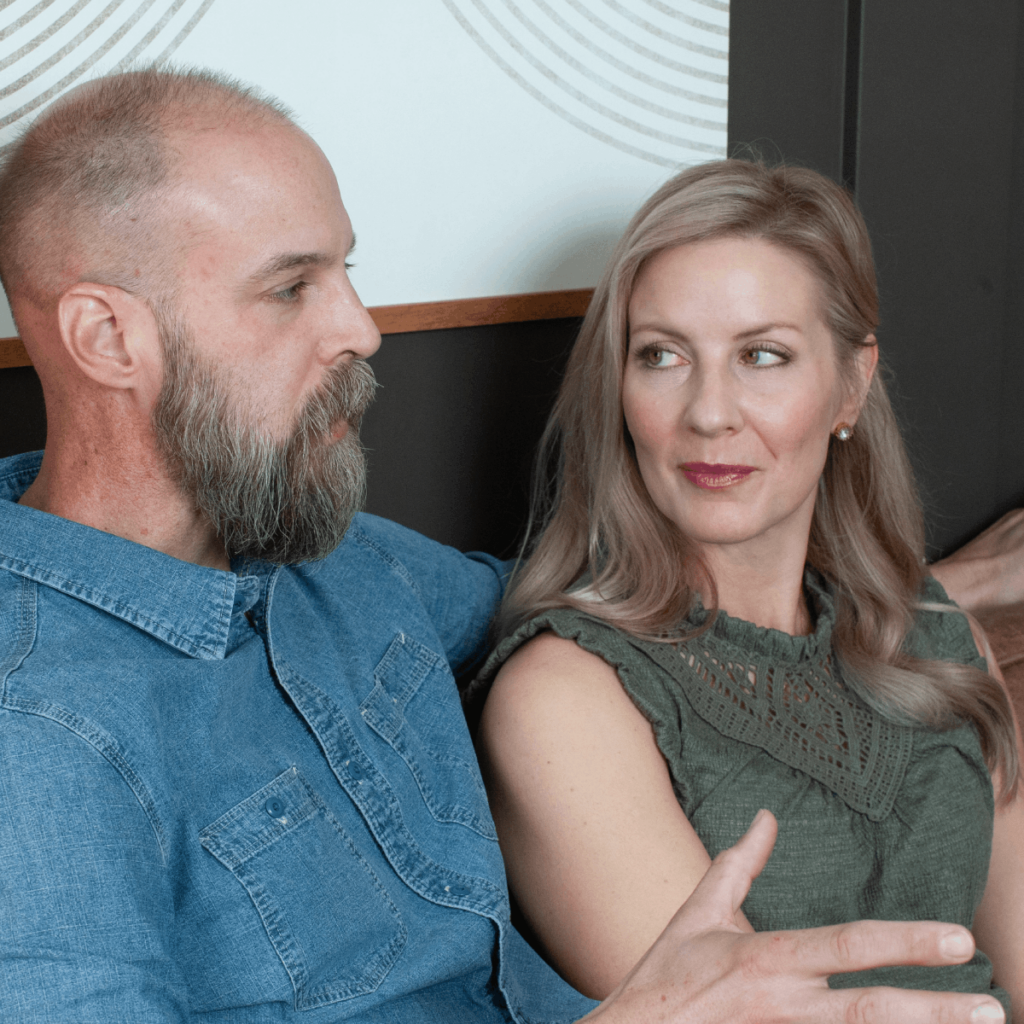
While working at Vertical, Ben grew more and more frustrated with a trend he saw in American churches.
“Men are voting with their feet (by not attending). The ones that are there look like they’re on anesthesia, gripping a cup of coffee until they would crush it,” he says. “I have been in that place … And it wasn’t a service that solved that. It wasn’t a sermon … It was relational connection.”
Ben had found that relational connection at Vertical Church, but “even a lot of men in the buckle of the Bible Belt don’t see church as a valuable resource for life change,” he says.
So Ben, his friend Steven Sahler, and a few others banded together to start a different kind of men’s group, inviting men from Vertical Church and Coyote Fitness, where Ben and Steven worked out.
“(It) was really an effort to try to engage men and help those men engage their own stories,” Ben says.
Because the group initially met at the Madison airport, they called it The Hangar. It started as a monthly gathering where a man would share his story — which could include his Christian testimony or any number of things — and the group would eat together. From there, smaller groups started meeting in men’s driveways.
“We began to have a group of 20 men on our driveway for seven years,” Ben says.
“Every Tuesday,” Cammie adds.
Before long, the Hangar groups were making an impact.
“It was nothing for my family to arrive (home) and you’ve got a grown man in his 40s, tears and snot in our driveway, because he’s been seen for the first time, and admitted something that perhaps first happened 20 years ago,” Ben says.
Hangar groups are operated from a Christian worldview but are open to men of all backgrounds. The men share openly about their lives, receive encouragement from other men, and ultimately deepen their relationships with themselves, others, and Christ.
“(The life change happens with) meeting people in their desperation,” Ben says. “As I look at the life of Jesus, that’s exactly what He was doing.”
The obedience whirlwind
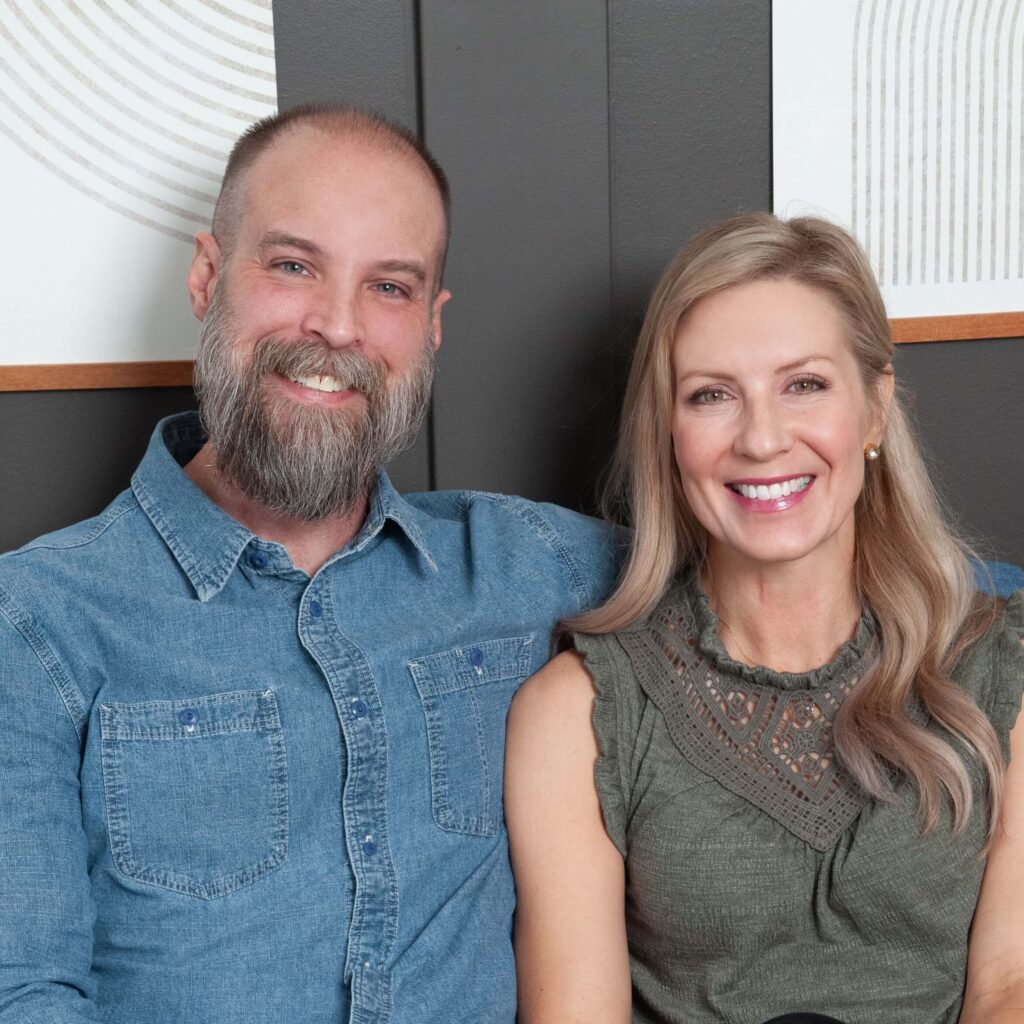
In 2021, Ben grew restless. He loved Vertical Church — it was a second home for him and his family — but The Hangar had stirred something up in him.
“(Cammie) encouraged me to pace that out,” he says, to figure out what that restlessness meant.
Through prayer and conversation with Cammie and other believers, including fellow Hangar men — plus a lot of trial and error — Ben eventually determined God was calling him to a career in mental health. But he wasn’t sure what that looked like.
He also had to figure out how and when to step away from Vertical.
“He committed (to) wait until the right person was found (to replace him as pastor) — not knowing how long that would take,” Cammie says.
Waiting was the least he could do, Ben says. “That community had done so much for us.”
While Ben continued serving as lead pastor, and Vertical sought a new one, he spent evenings and weekends getting training and certifications via the American Association of Christian Counselors and the Institute of Trauma Professionals.
During that time, he got a call from a friend, Maj. Drew Cleek of the Green Berets, who is stationed at the unit in Jackson. Maj. Cleek asked Ben if he would “show up” for the Green Berets inside of 20th Group, 2nd Battalion (2/20th), as he’d done for Hangar men — but as a paid, trained cognitive coach. Ben said yes.
From there, he received a similar request from the State Auditor’s office to meet with men in their C-suite. (Both State Auditor Shad White and his chief of staff are military.)
And finally, Ben sees individual and couple clients at his own practice, Hangar Cognitive Solutions.
“All of this was happening in what I call an obedience whirlwind,” Ben says.
“What’s really kept us steady are two (scriptures): Philippians 2 and Ephesians 2. Those places talk about God putting a will in you to do a particular work (Philippians 2:13). And then Ephesians says that’s a work that God has planned from a long time ago (Ephesians 2:10). So that’s been a process of obedience and discovery for us.”
In January 2023, Ben stepped down from Vertical. They had found a new lead pastor.
‘You’re doing great. Keep going.’
Ben and Cammie are not risk takers. “We’ve always liked to have a plan,” Cammie says. Contrary to their nature, Ben says, the last two years have felt like a “Ready, fire, aim” strategy.
Also, “leaving Vertical was incredibly emotional – maybe more so for me,” Cammie says. The Derricks decided to stop attending Vertical Church for a time in order to give the congregation space to make a clean transition between pastors. “It’s been very, very hard,” she says.
In the midst of navigating Ben’s career switch and the uncertainty that comes with it; visiting different churches; and raising two teen boys, “we have had to be intentional about looking for the good,” Cammie says.
Ben agrees: “We remain solidly married and faithful to one another, but there have been more tears shed in our living room in the past 24 months than our whole marriage combined.”
One challenge is that only Ben can see the “wins” from his new job in person, he says. “I can look in a man’s eyes and know, that man was suicidal three sessions ago. Now he’s making plans for (the future).”
Meanwhile, Cammie is “holding down the fort, making sure that the practical things are taken care of. (Her role) is of primary importance,” Ben says — and not just to support his career. For instance, Cammie is more than willing to say things like, “Hey, your 16-year-old son needs you today.”
“That sort of statement is very welcome inside of our marriage,” Ben says.
When asked how she and Ben try to encourage each other in their daily lives, Cammie says: “We’ve kind of let some of that go over the last year or so, and just here recently we’ve (said) OK, we’ve got to prioritize our marriage again.
“(For instance) today after this interview we’re going to have lunch together, just the two of us.”
They also try to thank each other for everyday tasks and sacrifices that are easy to take for granted. Seeing the good in each other helps balance out the frustrations, Cammie says.
Simple words of affirmation also make a big difference. “I’ve got a note (from Cammie) on the dash in my truck that says, ‘You’re doing great. Keep going,’” Ben says.
The Derricks have had to say no to social functions lately. They’ve even had to let certain relationships slide because their relationship with each other needs work and care.
“I probably have not been the best friend to people right now, or the best neighbor,” Cammie says. “But to keep myself sane, I’ve had to (stick to the basics).”
Another scripture that’s proved pivotal is Job 23:10, which says in part, “when (God) has tried me, I shall come out as gold.” The Derricks know they’re being tested.
“(That) verse and many alongside it have been the mooring place for us … because the waters are choppy,” Ben says. “Our marriage has provided that (safe harbor too), I think in ways that have even surprised us.”
“(This rocky season has) made us really thankful for the marriage that we have, and the foundation that we built a long time ago, largely because we had other couples pouring into us,” Cammie says.
Neither she nor Ben has handled the past two years perfectly. But isn’t that the point of grace? As Ben says: “It’s a unique gift to be able to fail fantastically in front of someone and have them love you on the opposite side of that.”
How to help the 2/20th
The Green Berets and other soldiers of the 2/20th whom Ben counsels are National Guard-attached, not active duty, meaning “they have limited access” to government resources and care, he says — adding that these men and women are in “acute levels of crisis and stress.”
During the global war on terror, the 2/20th deployed every three years. “(They’re) tired after 20 years of war.”
Also, “when you lose friends in Afghanistan and then the United States for its own reasons just shuts off the war, it leads these (soldiers) to a philosophical crisis,” Ben says.
One of Ben’s biggest priorities is raising money to give members of the 2/20th opportunities for “marriage counseling, testing for traumatic brain injury, which they all have … interruption for addiction issues, and to be seen and known and understood,” he says.
Sounds like a big ask. The 2/20th is comprised of 400 men and women in 48 states (some live right here in central Mississippi). But “when a soldier is (potentially) going to get foreclosed on (and) this fund reaches out with $1,400, that changes that man’s life.”
Thanks to his close contact with the 2/20th, Ben is able to direct donations where they’re most needed, he says. “That’s the goal, to meet those (soldiers) where they are in a way that they don’t demand or even expect. And that leads to a lot of, as you might imagine, spiritual conversations.”
To donate to the 2/20th, email Ben at ben@hangarcognitive.com or visit SpecialForcesCharitableTrust.org.

